UN documents ‘serious violations’ in Colombia crackdown
The United Nations has documented “serious” human rights violations committed by Colombian security forces during a crackdown on widespread protests in the South American country earlier this year, urging Bogota to urgently reform how it polices demonstrations.
In a new report released Wednesday, the Office of the UN High Commissioner for Human Rights (OHCHR) said it had found instances of “unnecessary or disproportionate use of force” by police officers during the protests between April 28 and July 31, in which a number of people were killed or injured.
The 63-page report also accused state security forces of murder, arbitrary detentions, sexual and gender-based violence, and acts of discrimination and racism.
The UN said it had verified the deaths of 44 civilians and two police officers during the clashes so far, adding that 76 percent of the victims had died of gunshot wounds.
“There are reasonable grounds to believe that police officers were responsible for at least 28 of these deaths and that at least 10 of these deaths involved members of the National Police’s Mobile Anti-Riot Squad (ESMAD),” the report said, adding that “non-state actors” had been involved in 10 other cases.
Some 60 reported cases of sexual violence allegedly committed by the police are also included in the report. So far, 16 have been verified by OHCHR.
The report further urged the Colombian authorities “to take the necessary steps to ensure those in charge of managing protests, in particular the National Police, only resort to dispersal of protesters in strict adherence of international human rights norms and standards.”
“All those reportedly involved in causing injury or death, including state officials, should face prompt, independent, impartial and transparent investigations, while victims should be ensured the right to full reparation,” it said.
The UN report also documented “serious acts of violence” against state agents, as well as damage to public and private property.
Back in April, protests broke out in Colombia in opposition to a proposed tax hike. The rallies soon tuned into an uprising of unprecedented scope against the right-wing administration of President Ivan Duque. The unrest lasted for weeks and rocked the country of nearly 50 million people.
The demonstrators have been demanding an end to police repression and more supportive public policies to lessen the economic impacts of the COVID-19 pandemic. Over 40 percent of Colombia’s population is now living in poverty.
According to the state-run human rights watchdog Ombudsman’s Office of Colombia, more than 60 people were killed during the protests, but the public prosecutor’s office has put that figure at 29.
The government blamed dissident leftist guerrillas for the violence.
The Inter-American Commission on Human Rights (IACHR) has slammed Colombia for its “disproportionate” and “lethal” response to the protests, and has also recommended that police be separated from the military.
US fighter aircraft shot down ‘in friendly fire’ amid aggression on Yemen
Yemeni FM: Israel’s sponsors accountable for ongoing aggression on Sana’a
Eight Palestinians killed as Israel attacks Gaza school, hospitals
VIDEO | Rome, Milan host new protests in solidarity with Palestinians
Dec. 21: ‘Axis of Resistance’ operations against Israeli occupation
Spain jurists demand ties with Israel ties be cut
VIDEO | Press TV's news headlines
VIDEO | Iran honors top Science Olympiad medalists


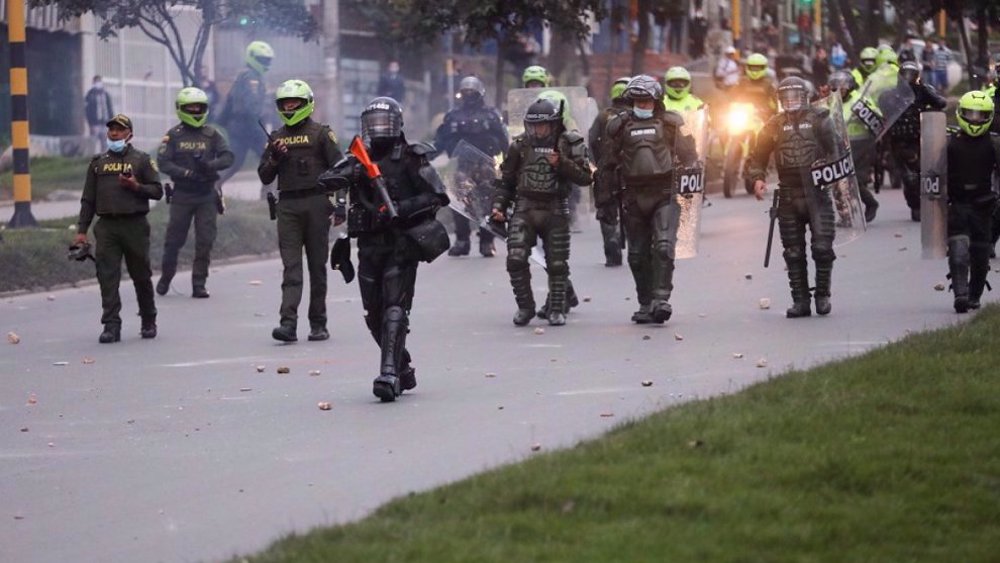
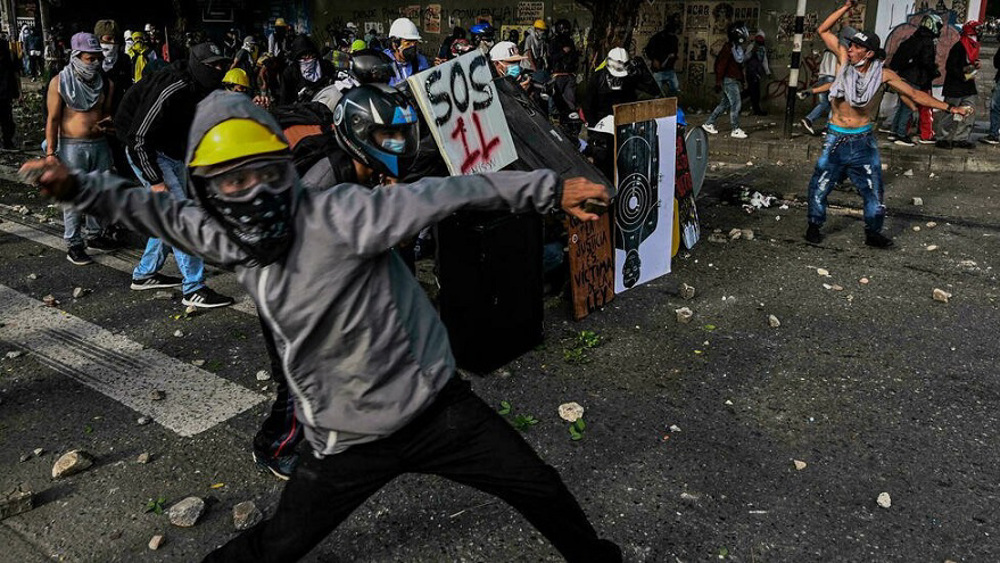
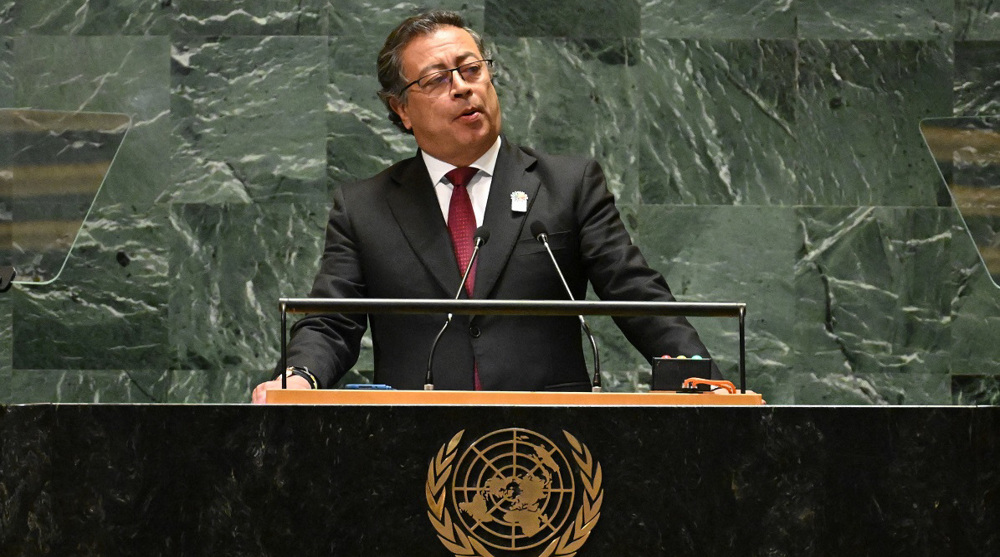
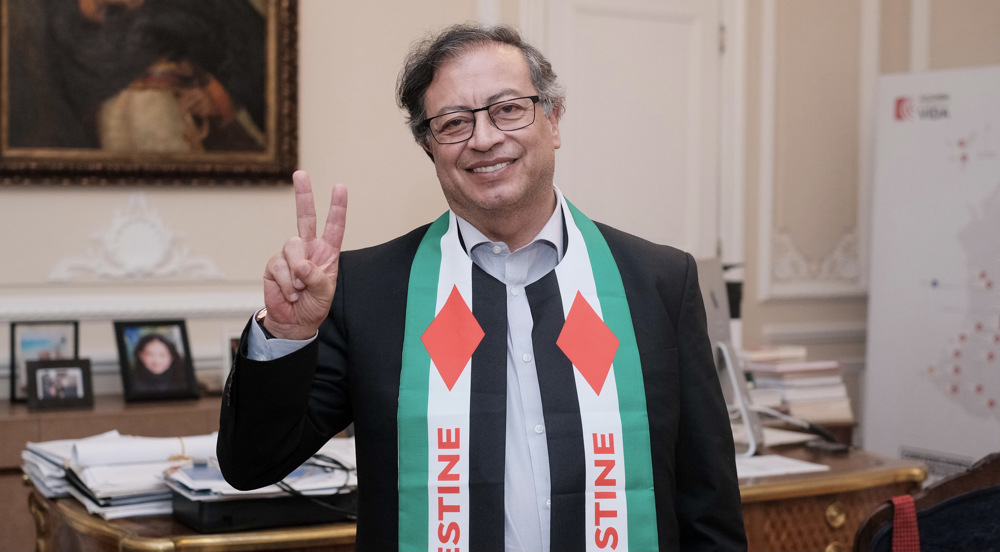
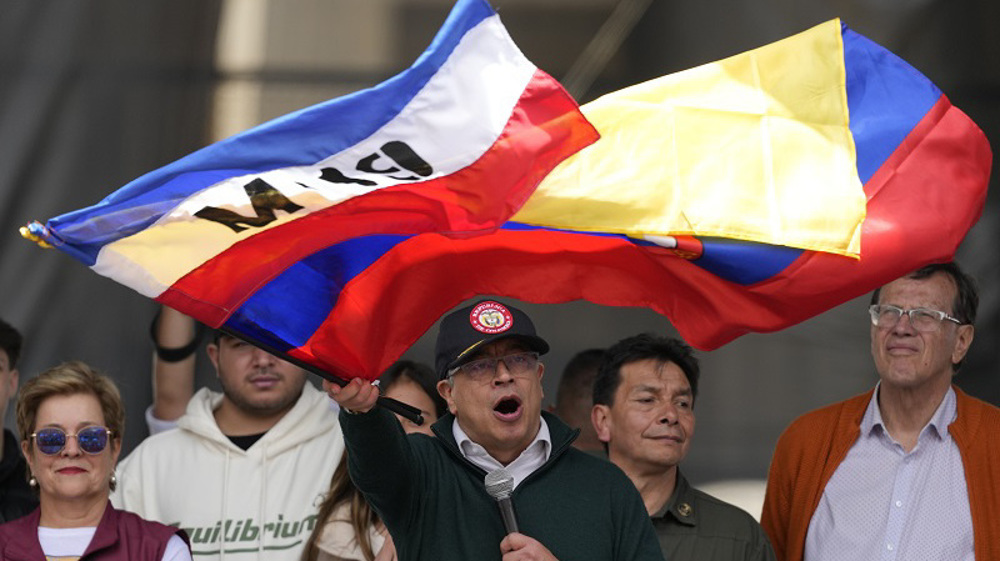



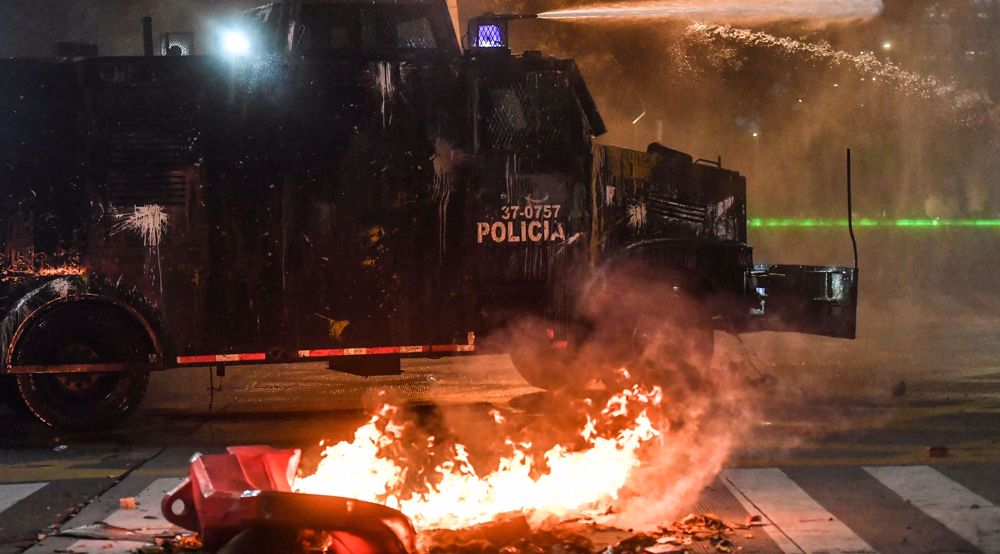
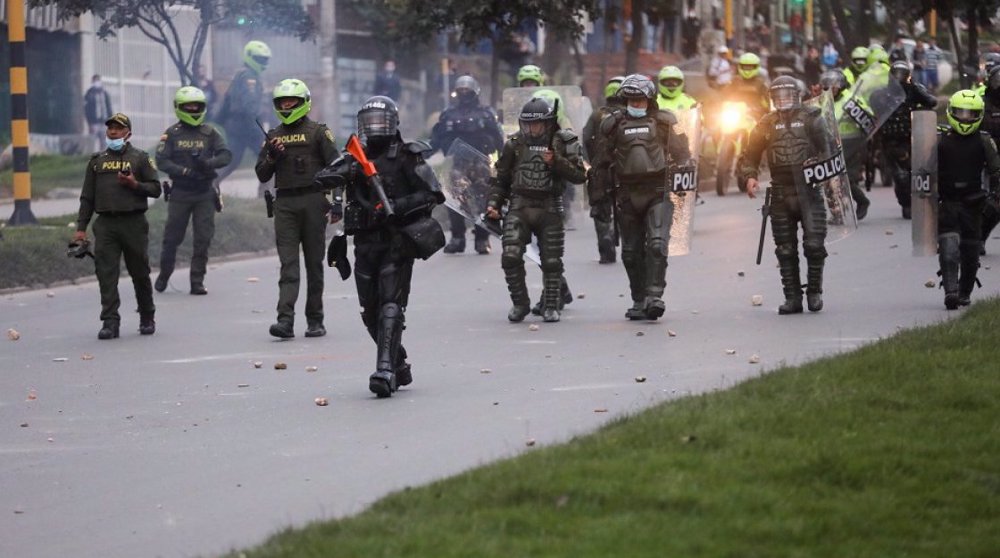

 This makes it easy to access the Press TV website
This makes it easy to access the Press TV website